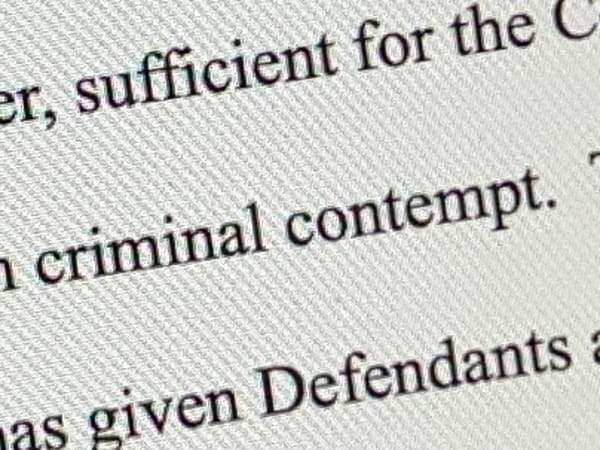Lynch law meets lynch legalism
INDIGNITY VOL. 3, NO. 155

THREAT ASSESSMENT DEP'T.
Whose Fault Is Mob Violence?
HERE ARE PASSAGES from three different news stories on three different topics I read this week. One was a story on Bloomberg News about how Whole Foods is trying to block workers from wearing masks that say "Black Lives Matter" on the job:
While Amazon has displayed the “Black Lives Matter” slogan on its own website, Whole Foods argued at a hearing last year that the movement is “controversial,” and is viewed by former President Donald Trump and many of his supporters as a “symbol of hate.” Allowing workers to wear the slogan could create danger in the stores, the company said.
(Emphasis added.)
Another was a New York Times story about how Stephen Kershnar, a tenured philosophy professor at SUNY Fredonia, was suspended after he indulged in a fairly repulsive podcast thought experiment about adult/child sex last year, got targeted by right-wing media and social media—including the Libs of TikTok rage-campaigning account—and now remains in administrative limbo:
In court documents, SUNY Fredonia cites threats and defends its ban as necessary for both Dr. Kershnar’s safety and that of the campus.
“If he were to return,” Brent S. Isaacson, the campus police chief at the time, said in a July court filing, “the public’s disgust would extend to this campus, and we would again be viewed by many members of the public as sympathetic to Kershnar’s views and therefore at risk of violence.”
(Again, emphasis added.)
And then there was a long excerpt in the Atlantic from McKay Coppins' upcoming all-access biography of Mitt Romney. Romney described to Coppins how his Republican colleagues in Congress had responded to the January 6 attack on the Capitol and the impeachment of Donald Trump that followed:
Some of the reluctance to hold Trump accountable was a function of the same old perverse political incentives—elected Republicans feared a political backlash from their base. But after January 6, a new, more existential brand of cowardice had emerged. One Republican congressman confided to Romney that he wanted to vote for Trump’s second impeachment, but chose not to out of fear for his family’s safety. The congressman reasoned that Trump would be impeached by House Democrats with or without him—why put his wife and children at risk if it wouldn’t change the outcome? Later, during the Senate trial, Romney heard the same calculation while talking with a small group of Republican colleagues. When one senator, a member of leadership, said he was leaning toward voting to convict, the others urged him to reconsider. You can’t do that, Romney recalled someone saying. Think of your personal safety, said another. Think of your children. The senator eventually decided they were right.
(Emphases added.)
I didn't go looking to collect these stories as a set; they just happened by, because the same sort of thing gets written up all the time. Across every domain of American life—a state university, a high-end supermarket chain, the United States Congress—people are making decisions about what to do based on the fear of someone getting murdered. In the cases of SUNY Fredonia and Whole Foods, the institutions are openly invoking the threat of murder to justify their policies, under judicial or administrative review. They have to restrict their employees' activities, they argue, because otherwise someone might get killed.
This is the logic of lynch law, but there's something else behind it—the power of acquiescence. The hypothetical killers themselves are oddly passive and out of focus. All of the agency belongs to their would-be targets: Workers wearing BLM masks in Whole Foods would "create danger in the stores"; a member of Congress impeaching Trump would "put his wife and children at risk." SUNY Fredonia, the Times reported, argued it can't restore the sidelined professor because "protecting the professor would take 'an extraordinary and financially prohibitive expansion' of the campus police department."
The professor himself, according to the Times, holds that the university is exaggerating the threats. Maybe it is; Libs of TikTok thrives (or survives) on the ambiguity and distance between its naming and condemning its targets, the threats its audience barrages those targets with, and what some members of its fanbase sometimes actually do. The university can point to an external menace, even a vague one ("Mr. Isaacson said 'Hunters don’t howl,' meaning that an actual violent actor would not telegraph an attack"), and avoid internal responsibility for pushing out, or for not pushing out, a tenured faculty member.
And what about Congress? Romney's Republicans were citing the threat of possible future violence as an excuse for not doing anything about an act of violence that had already happened. Were they afraid of the mob? Or were they trying to get on the mob's good side, in case next time it won?

RECOMMENDED READINGS DEP'T.
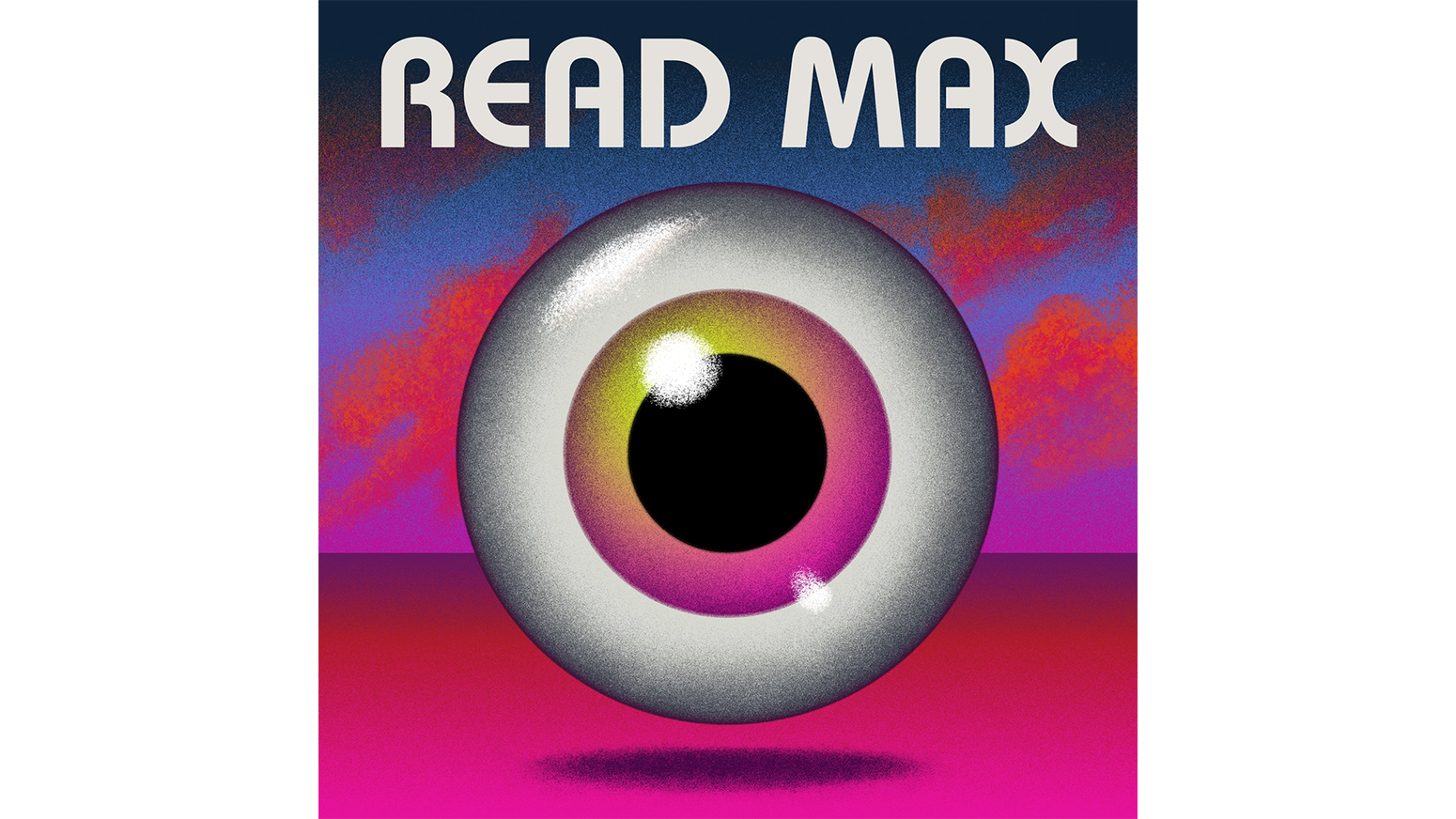
TODAY’S EDITION OF the Read Max newsletter, Indignity's movie-watching partner, has a delightfully obsessive survey of the style and substance of the fake emails and text messages that Apple has displayed through the years in showcasing its new products:
The denizens of Dimension Apple love the following things: Punctuation, trips, sharing photographs, using emoji, taking photographs, surprise parties. You might be inclined to say that they hate roasts, bits, gossip, cynicism, text abbreviations like “LOL,” and other standard features of texting in our dimension--but it is not at all clear to me that any of these things even exist in Dimension Apple to be hated. Like Android users, irony simply does not occur in Dimension Apple.
This is Read Max at its Read Maximum. Indignity gives it its highest recommendation.

WEATHER REVIEWS

New York City, September 14, 2023
★★★★★ The sky was rich, clear blue; the air was straightforwardly cool. Three people sat on the stoop of the still-unsold death house, cheerful and relaxed in the light. The window stuck a little as convalescent muscles tugged at it, but then it slid up smoothly. Tiny planes crossed the top of the sky. What could hold various small objects for a trip outside? A jacket! The pockets of a jacket—slung over the arm, at first, but ready for later. Late sun crowned the treetops on the Great Hill. Down in the streets, with the tunnel-bound traffic, the sunset was a cloudless and almost featureless wash of orange. From a high enough floor, though, a vivid band of red revealed itself along the horizon.

SANDWICH RECIPES DEP’T.
WE PRESENT INSTRUCTIONS for the assembly of select sandwiches from Recipes: Dainties, Salads and Clever Hints, author unknown, published by the Lorain Printing Co. in 1919. This book is in the Public Domain and available at archive.org for the delectation of all.
CHEESE SANDWICH No. 5— Grate 1 cup of cheese, add 1 spoon butter, salt and cayenne, 1 teaspoon mustard, 1/2 teaspoon Worcestershire sauce, vinegar to spread smoothly. Rye or graham bread.
CHEESE SANDWICH No. 6— Grate 1 cup of cheese, mix 1 tablespoon caraway seed, 1 teaspoon onion juice, 1 finely chopped red pepper, cream to make paste. Rye bread.
COTTAGE CHEESE SANDWICH No. 7— One cup of cottage cheese, 1 cup chopped peanuts, cream to spread. Whole wheat bread.
COTTAGE CHEESE SANDWICH No. 8— One cup cheese; 1/2 cup chopped parsley; salt; cayenne; 1 cup cottage cheese; 1 cup cut, not chopped dates; 1/4 cup heavy sweet cream. Mix to smooth paste; fill between buttered slices of graham bread.
If you decide to prepare and attempt to enjoy a sandwich inspired by this offering, kindly send a picture to us at indignity@indignity.net.

EASY LISTENING DEP’T.
INDIGNITY MORNING PODCAST
Indignity Morning Podcast No. 146: Pathological feats of attempted balance.
Tom Scocca • Sep 15, 2023
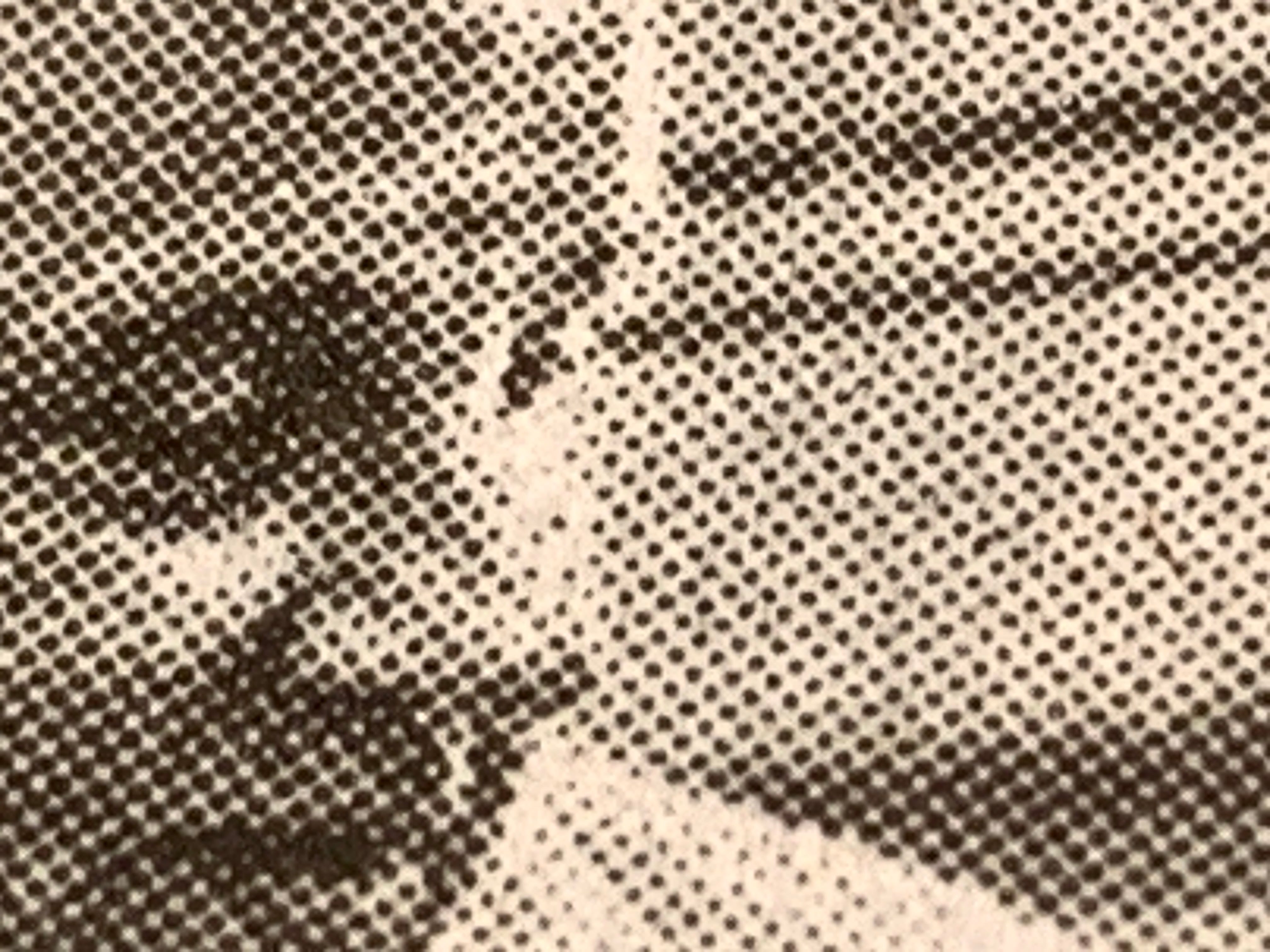
Listen now (6 mins) |
Read full story →

MARKETING DEP'T.
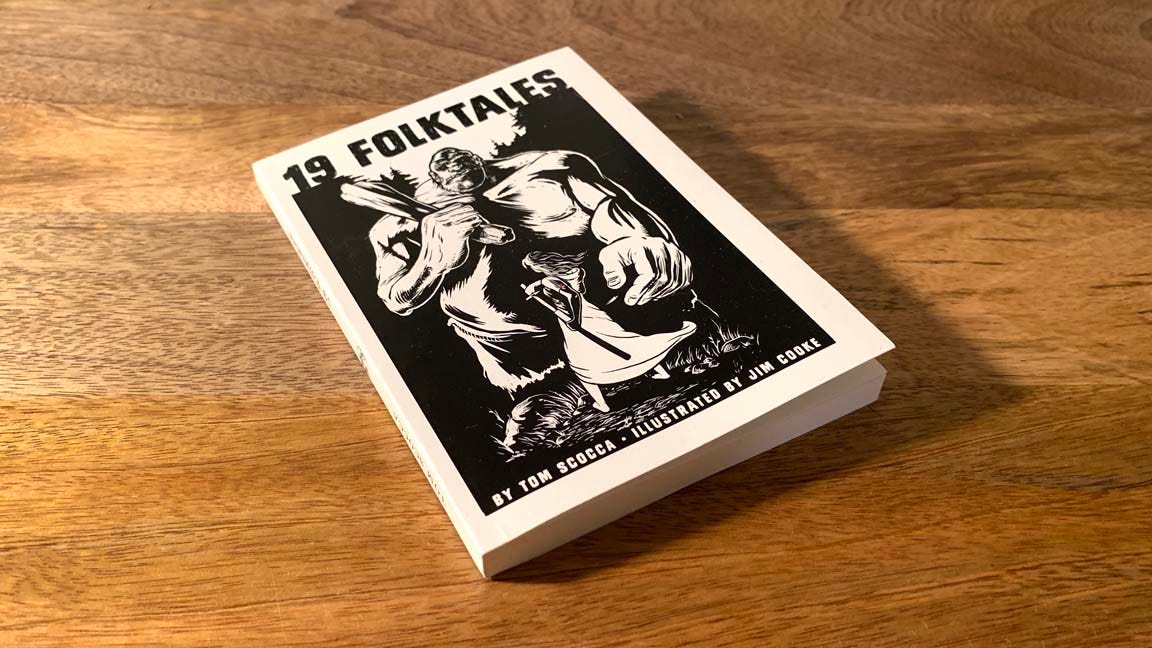
19 FOLKTALES collects a series of timeless tales of canny animals, foolish people, monsters, magic, ambition, adventure, glory, failure, inexorable death, and ripe fruits and vegetables. Written by Tom Scocca and richly illustrated by Jim Cooke, these fables stand at the crossroads of wisdom and absurdity.
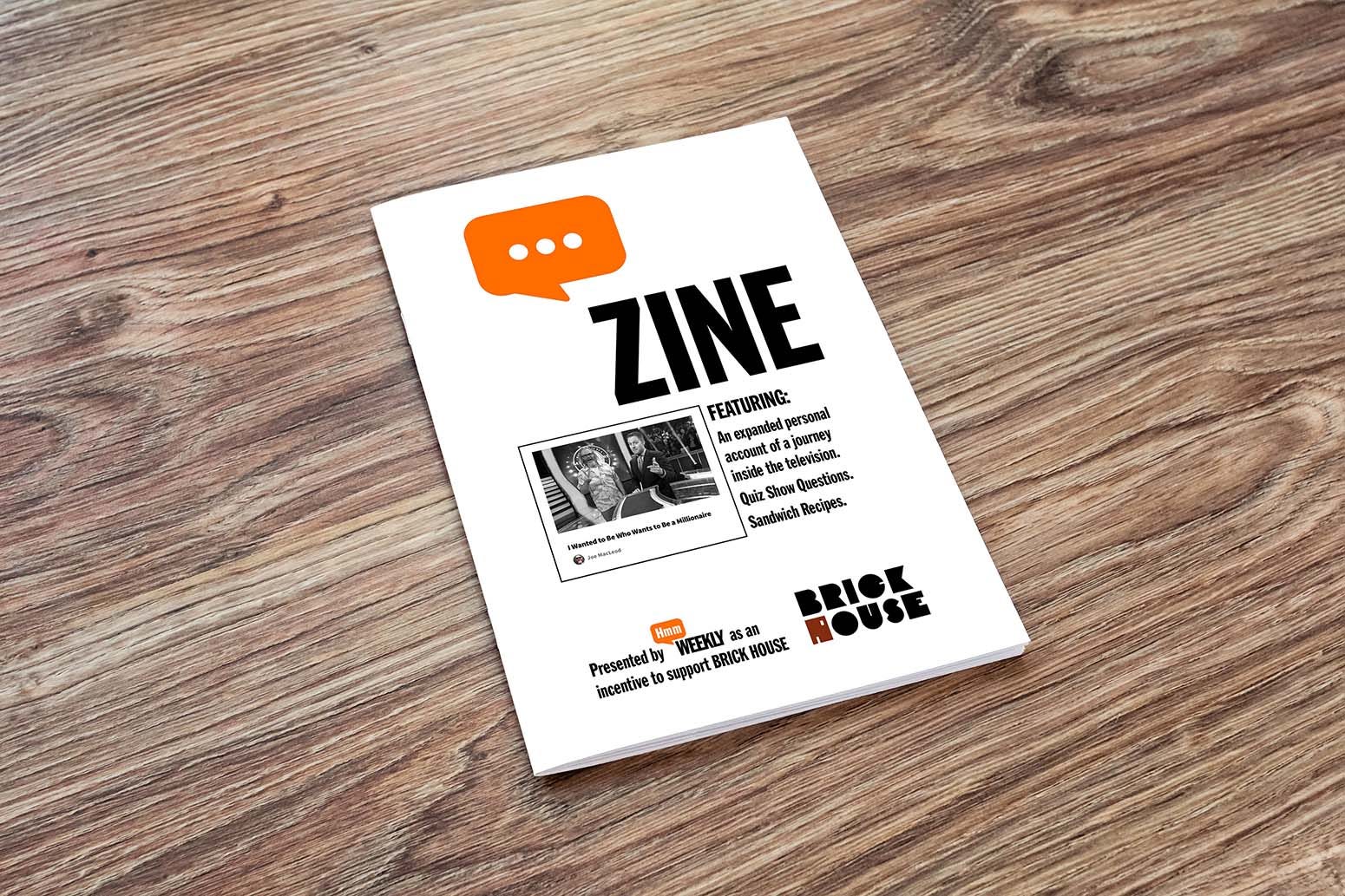
HMM WEEKLY MINI-ZINE, Subject: GAME SHOW, Joe MacLeod’s account of his Total Experience of a Journey Into Television, expanded from the original published account found here at Hmm Daily. The special MINI ZINE features other viewpoints related to an appearance on, at, and inside the teevee game show Who Wants to Be A Millionaire. Your $20 plus shipping and tax helps fund The Brick House collective, a Publishing Concern featuring a globally diverse set of publishers doing their own thing, with interesting items and publications available for purchase at SHOPULA.
Thanks for reading INDIGNITY, a general-interest publication for a discerning and self-selected audience. We depend on your support!






